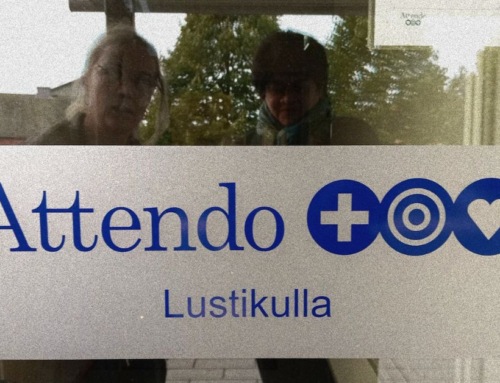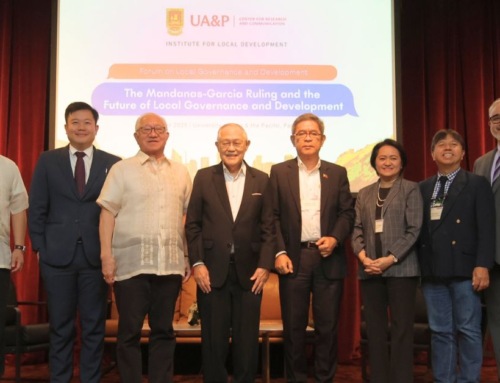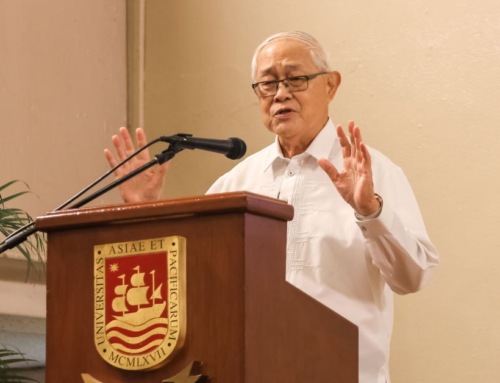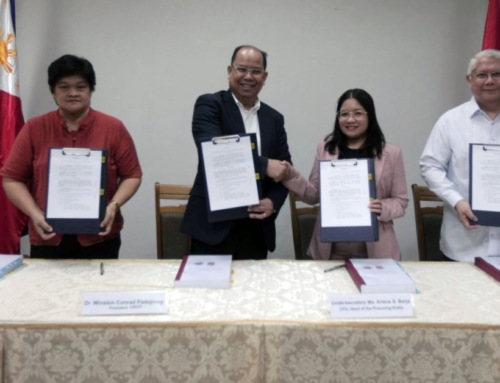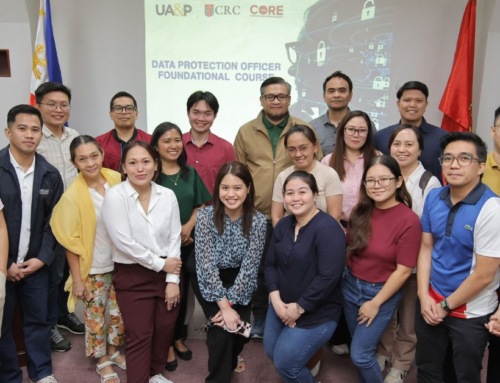Dr. Veronica E. Ramirez is conducting a Policy Forum Series on her research study entitled, “Patterns of Detection and Treatment of Mental Health Problems among Overseas Filipino Workers (OFWs): Implications to Psychosocial Support Services” in different regions.

The research study is funded by DOST-PCHRD Health Research Policy Translation, Evaluation, and Engagement (POLISEE) Grants Program in collaboration with the Center for Research and Communication. The program for policy forums on OFW Mental Health and Well-Being Protection across the country is under the Project “The Development of Policy Instruments and Stakeholder Engagements for OFW Inclusive and Sustainable Mental Health and Well-Being Protection.” The series of forums are conducted in Region 3, DOST San Fernando Pampanga on 30 January; in Region 7, DOST Cebu on 19 February; in Region 12, DOST- Koronadal on 04 March: and in Region 4A, OWWA Calamba, Laguna on 14 March. After the Policy Series, Dr. Ramirez will be presenting the Policy recommendations to legislators and other migrant work stakeholders.
Region NCR Policy Forum was held at the University of Asia and the Pacific on 15 February. This was attended by officers and representatives of the DOST PCHRD, Department of Health (DOH), Department of Foreign Affairs (DFA), Department of Science and Technology (DOST), Department of Social Welfare and Development (DSWD), Department of Interior and Local Government (DILG), National Economic Development Authority (NEDA), UP CIFAL, City governments of Quezon City and Makati, UA&P faculty and Mr. Bansan Choa of Surewell Equities, Inc.

In her research, Dr. Ramirez investigated the common processes, services and practices in the detection and treatment of OFW mental health problems in the different stages of migrant work: Pre-deployment, Employment and Return. She found that more than a psychological test, what is more appropriate to migrant work is psychosocial evaluation that can measure readiness for overseas work which includes indicators of multicultural, socio-economic, emotional and psychological attributes. She has also determined the major stressors and psychosocial factors that affect OFWs’ well-being in their country of work due to Work environment, Job content, Organizational condition, Workers’ capacities, needs and culture, and Personal conditions. Among her recommendations is the use of a psychosocial evaluation to determine the applicant’s readiness for overseas work; intensive awareness campaigns to break the barriers to help-seeking practices on mental health; and the establishment of more psychiatric clinics with more expert personnel, facilities and medication in the Regions with a large number of OFW families.
The study was conducted during the COVID-19 pandemic, an opportunity for her to observe the processes, services and practices in mental health under such a great strain from disruptive global event. Lessons that can be learned from the research of Dr. Ramirez can guide the improvement and closing of gaps in OFW mental health service if a similar catastrophic situation is encountered.
After her presentation, the participants discussed the applicability of three policy recommendations in their own institution: First, the use of Psychosocial evaluation as a tool for detection of OFW mental health problem. Second, the Responsiveness of processes, services & practices to OFW mental health problem; and Third, the Psychosocial support services that address OFW mental health problems. These policies can guide decision making and action that can benefit our OFWs.
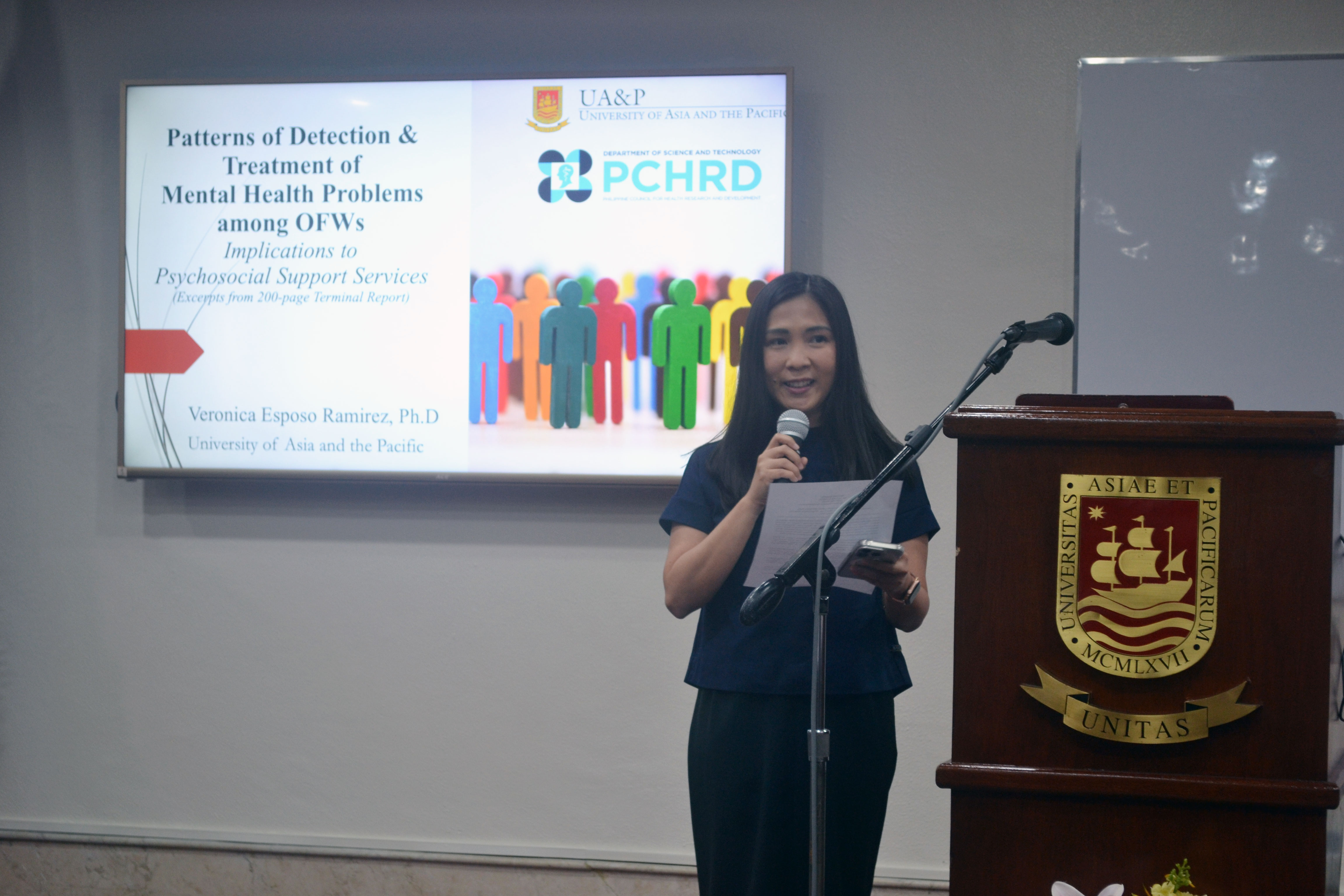
Evidently, this is a concrete support to the Mental Health Law Republic Act 11306, where the State commits itself to promoting the well-being of people by ensuring that mental health is valued, promoted and protected. Dr. Ramirez has done us a great service by proposing data-based solutions to treat mental health problems of our modern-day heroes.
The challenge to Key stakeholders, institutions and individuals who advocate mental health for OFWs is to participate in the policy analysis and formulation; and then support the implementation of these policies so that our OFWs can “Break Free from Struggle in Silence” – the title of Dr. Ramirez’ upcoming book which is also supported by the DOST PCHRD.
To reserve a free copy of the book, please email [email protected]
———————————————————–———————————————————–———————
Learn more about CRC’s contributions in Migration and Overseas Filipino Work. In this field, CRC has brought about in-depth insight into the lives of the millions Filipino migrant workers whose contributions make a sizeable chunk of the Philippine economy – from their education and recruitment in the Philippines to their concerns and life strategies while working overseas, to their successful reintegration upon returning to the country.
The Bank of the Philippine Islands (BPI) Foundation, Inc., established the BPI Professorial Chair for Migration and Overseas Filipino Work (MOFW) on February 3, 2014. For years, the holder of the professorial chair has been undertaking intensive research on migration and development to guide policy makers, and publish teaching resource materials on the integration of migration into the K-12 Basic Education Curriculum subjects.
To find out more about CRC, send an email to [email protected], or message +639054280727, or follow us on LinkedIn. You can also find us on Facebook.

